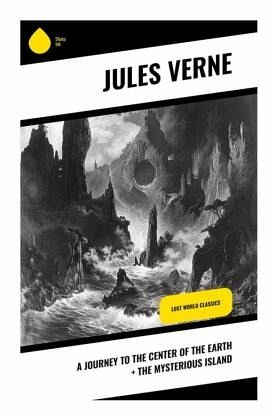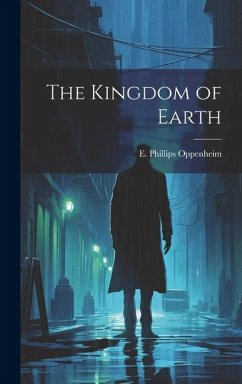
A Journey to the Center of the Earth + The Mysterious Island
Lost World Classics
Übersetzung: Malleson, Frederick Amadeus

PAYBACK Punkte
0 °P sammeln!
In Jules Verne's seminal works, "A Journey to the Center of the Earth" and "The Mysterious Island," the reader is propelled into a world of scientific exploration and adventure that deftly blends imagination with emerging scientific discoveries of the 19th century. Verne employs a richly descriptive narrative style, crafting vivid landscapes and intricate details that invite readers into the depths of subterranean worlds and uncharted islands. Both novels explore themes of human ingenuity and resilience in the face of nature's vastness, while echoing the era's fascination with geology, biology...
In Jules Verne's seminal works, "A Journey to the Center of the Earth" and "The Mysterious Island," the reader is propelled into a world of scientific exploration and adventure that deftly blends imagination with emerging scientific discoveries of the 19th century. Verne employs a richly descriptive narrative style, crafting vivid landscapes and intricate details that invite readers into the depths of subterranean worlds and uncharted islands. Both novels explore themes of human ingenuity and resilience in the face of nature's vastness, while echoing the era's fascination with geology, biology, and technology, thus positioning them at the crossroads of adventure literature and scientific inquiry. Jules Verne, often hailed as the father of science fiction, was heavily influenced by the scientific advancements of his time and his fervent love for exploration. His experiences with contemporary geologists and his voracious reading on natural sciences informed much of his writing, enabling him to create compelling narratives that marry technical accuracy with thrilling adventure. Verne's deep curiosity about the natural world and his ability to envision future technologies informed the rich tapestries of these novels. Both "A Journey to the Center of the Earth" and "The Mysterious Island" are essential reads for anyone intrigued by the interplay of adventure and science. Verne's ability to transport readers to unexplored realms while encouraging a curiosity about the natural world continues to resonate today. These classics not only entertain but also inspire, making them indispensable additions to the library of any avid reader.













